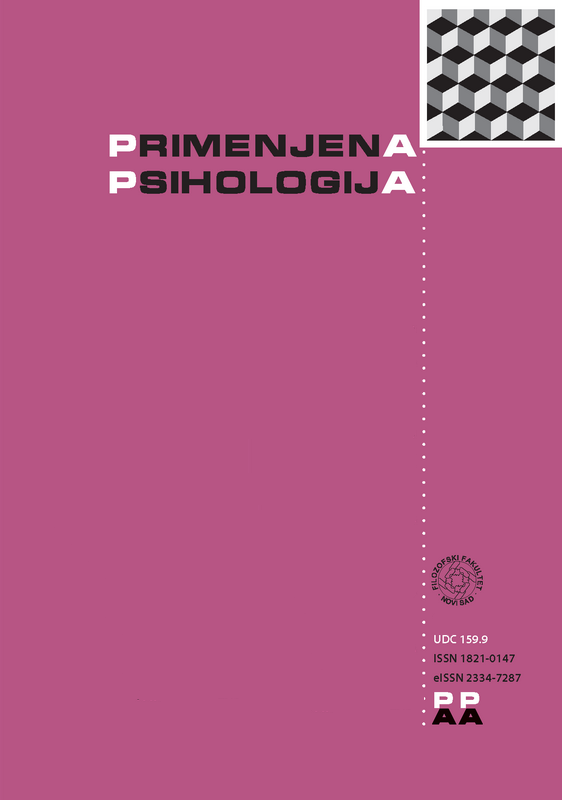Perfectionism - positive or negative feature? relationship with subjective well-being, optimism and pessimism
DOI:
https://doi.org/10.19090/pp.2015.1.83-100Keywords:
positive and negative perfectionism, subjective well-being, optimism, pessimismAbstract
The aim of this study was to examine the relationship between positive and negativne perfectionism, and subjective well-being, and to test mediation effect of optimism and pessimism as cognitive mehanisms among them. According to the Dual process model of perfectionism, there are differences in cognitive functioning among positive and negative perfectionists, that consequently lead to different positive and negative outcomes. Gender – balanced sample consisted of the students (N = 287) from the University of Niš, Serbia. In general, the obtained results revealed that the positive and negative forms of perfectionism were differently related to subjective well-being, supporting the Dual process model. Results also pointed out that the relation between positive perfectionism and subjective well-being was partially mediated by optimism, while the relation between negative perfectionism and subjective well-being was fully mediated by optimism and pessimism. It seems that the general way of thinking which perfectionists have adopted can protect but also disable outcomes of performed activities, contributing to either higher or lower level of subjective well-being. However, according to the findings of this study, cognitive processes are not the only mediators of this relationship. Hence there is a need to examine other mechanisms which can relate perfectionism to subjective well-being and other mental health indicators.Downloads
Published
23.03.2015
How to Cite
Panić, D., Radojković, D., & Hadži Pešić, M. (2015). Perfectionism - positive or negative feature? relationship with subjective well-being, optimism and pessimism. Primenjena Psihologija, 8(1), 83–100. https://doi.org/10.19090/pp.2015.1.83-100
Issue
Section
Regular issues







